How to engage Young Adult Supporters with purpose in 2025
.jpg)
A generation delayed?
Young adults aged between 18–26 years are navigating futures that are complex and disrupted on a scale not seen since the end of the Second World War.
They find themselves trying to attain the life goals of their parents and grandparents before them, that are now out of step with reality. Add the compounding impact of the pandemic and we have a generation ‘delayed’ socially, educationally and financially.
This means that the attitudes and behaviours of young adults have changed significantly and non-profit organisations need to change with them to secure ongoing support and replenish membership bases.
In March 2025 Our Media surveyed a nationally representative sample of young adults aged between 18–26 years old about their behaviours regarding personal agency, support for charities and media habits. We also consulted with Prof. Patrick Alexander, a leader in researching and lecturing in the field of youth transitions to adulthood for University of Oxford and Oxford Brookes University.
Our questions focussed specifically on charities and non-profits, screening out commercial memberships and subscriptions.
Here are the standout findings and takeaways.
.jpg)
The key shifts
Four main themes stood out in the way young adults now navigate the world around them.
1. Identity politics: a shift towards more local rather than global concerns.
Let down by shortcomings in the education system, irrelevantly broad-brush political policies, inaction on climate change and the effects of austerity on public services and the arts, young adults have turned inward and local. They prioritise matters that engage directly with their personality and immediate circumstances.
2. Self-fulfilment: shifting the identification of personal success away from financial.
Young adults are taking back control by shifting their priorities away from financial success and towards personal fulfilment. Their preferred route is towards self-actualisation and a sense of place in an otherwise unstable world.
3. Post-digital: this generation experiences the world through a multitude of third party sources.
Many young adults do not connect with the outside world in a way that is familiar to the parents, politicians and business leaders shaping the society that they are trying to navigate. Instead, they do it via screens, algorithms and unreliable narrators with huge platforms. Digital is not another channel, it is an integral extension of their daily lives.
4. Polygamous working: not just multiple careers, but multiple jobs.
While the notion of multiple careers is now commonplace, young adults also find themselves increasingly spread thinly across multiple jobs at any one time.
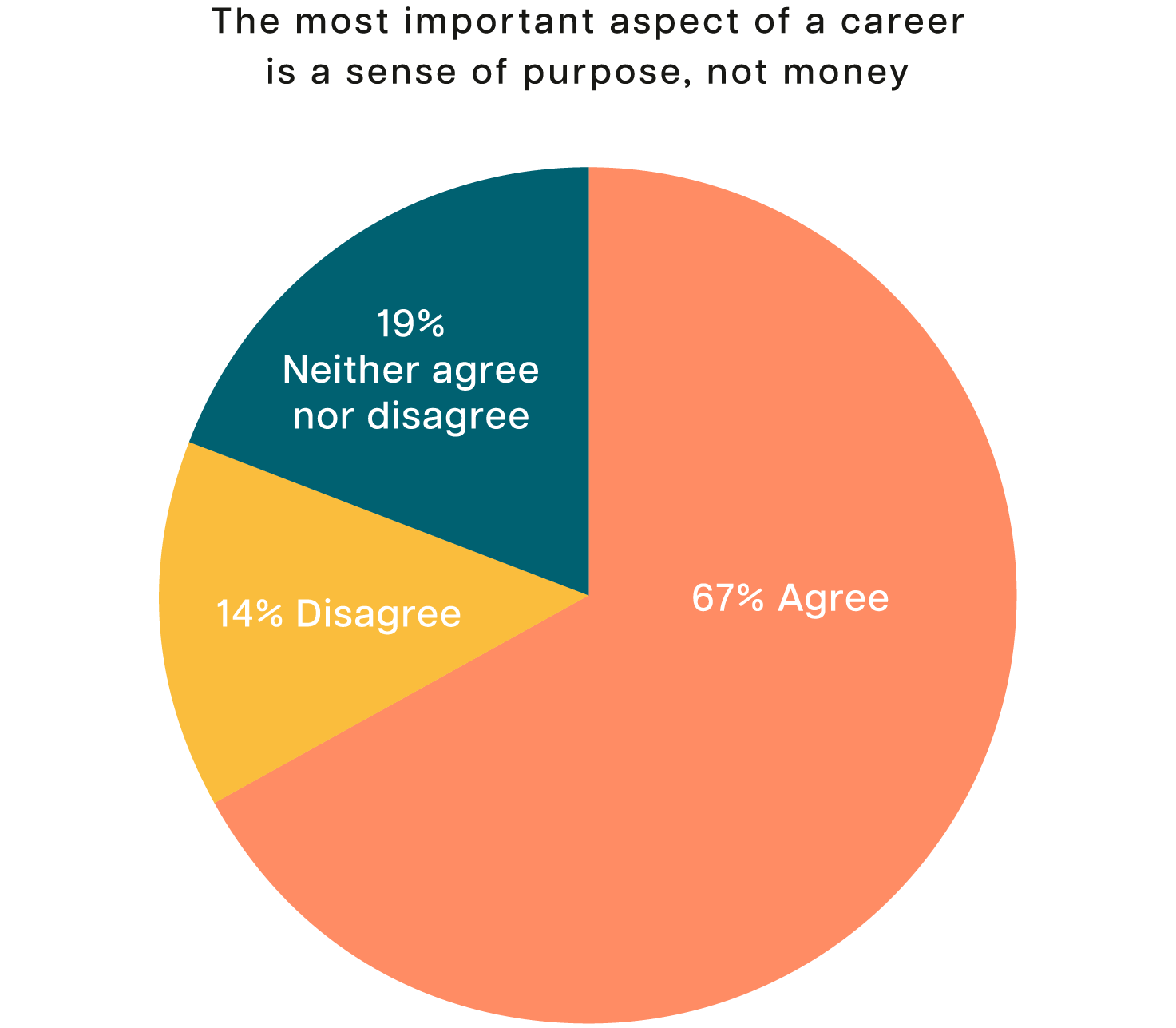
Some myths busted?
The findings overturned some commonly held presumptions about this generation.
1. Young adults do care about causes and finding ways to engage.
2. They are willing to financially support causes they care about.
3. They view 'membership' differently than previous generations.
4. A sense of 'intellectual wellbeing' is their first priority.
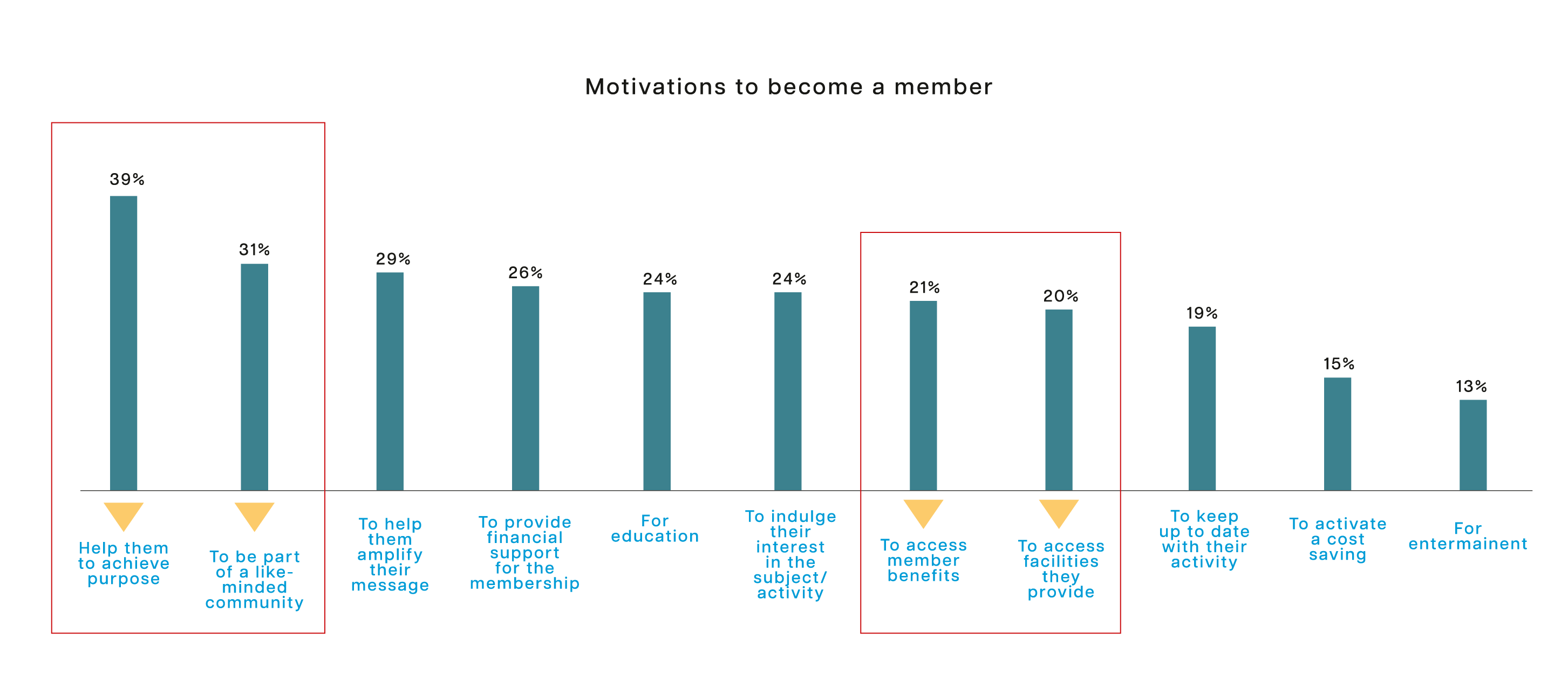
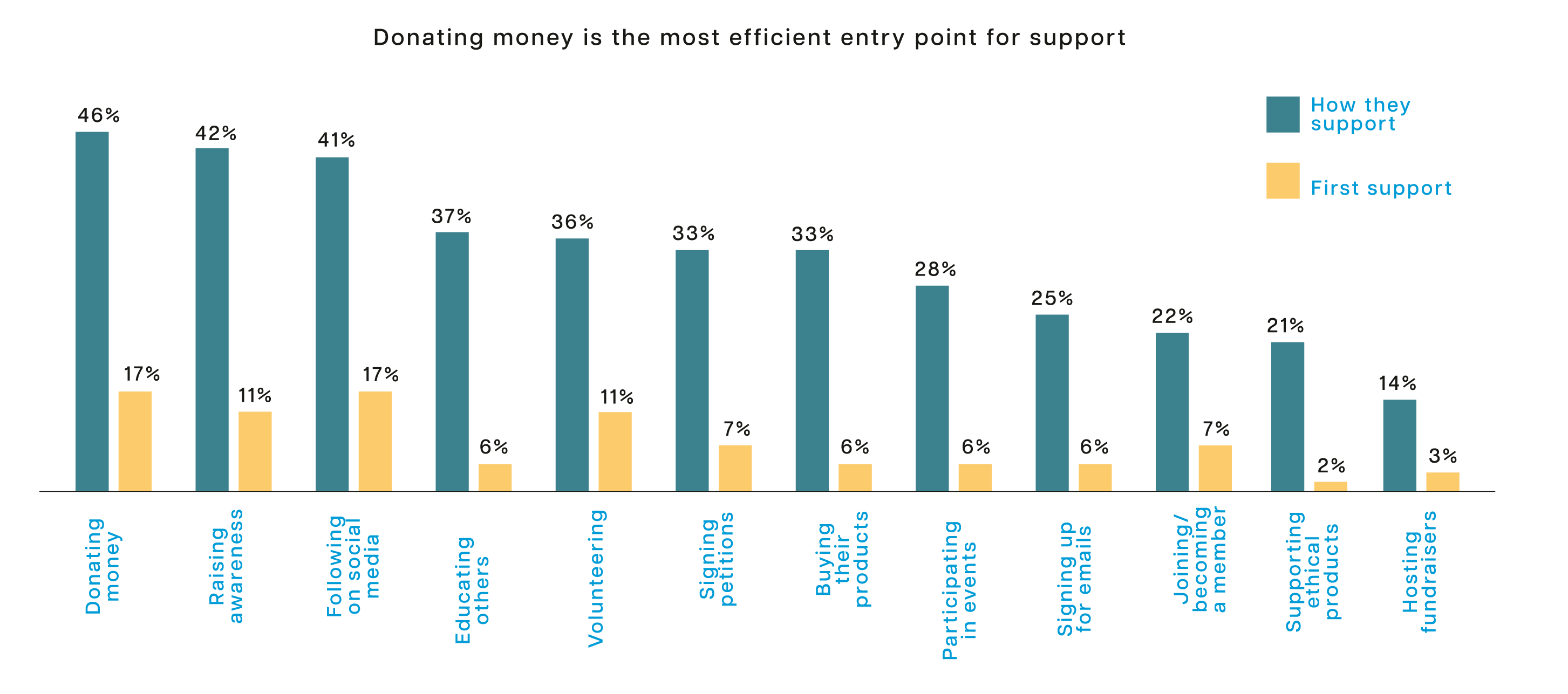
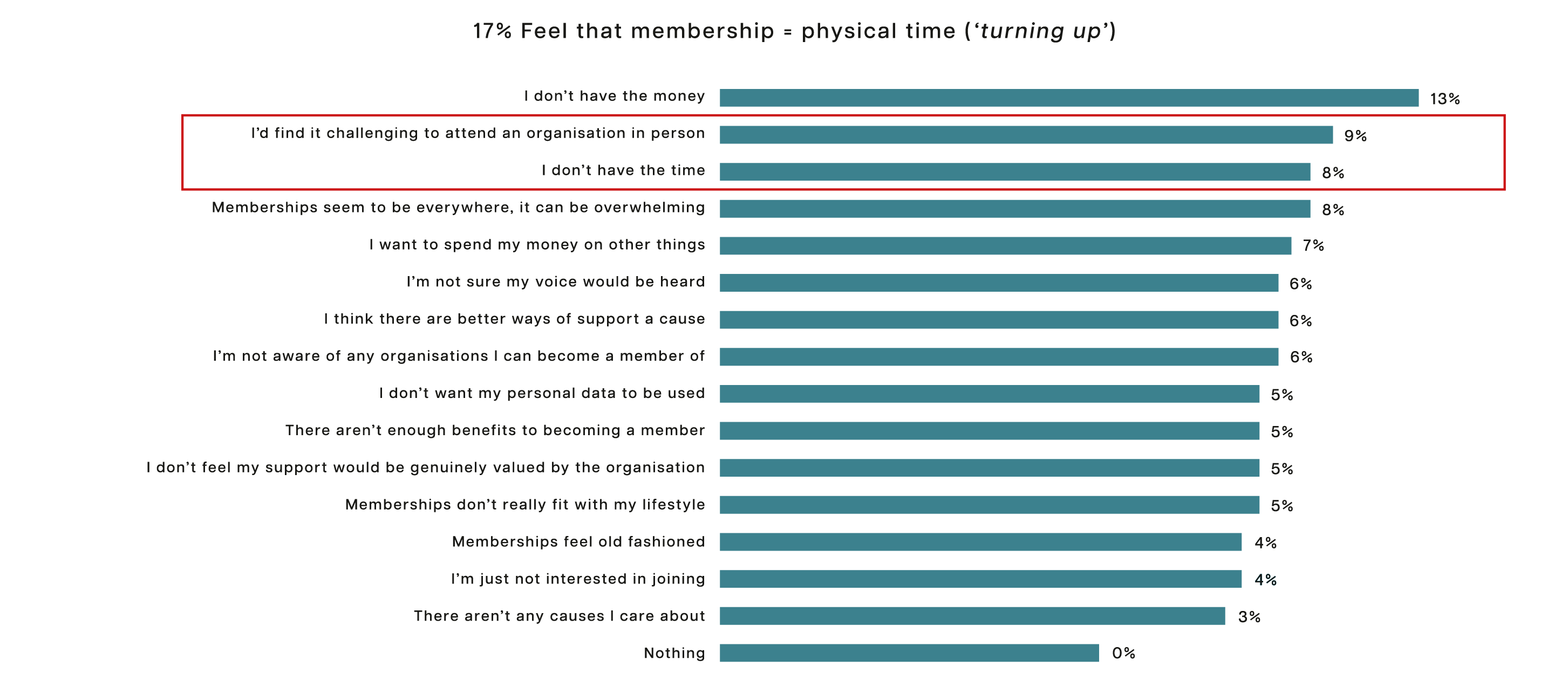
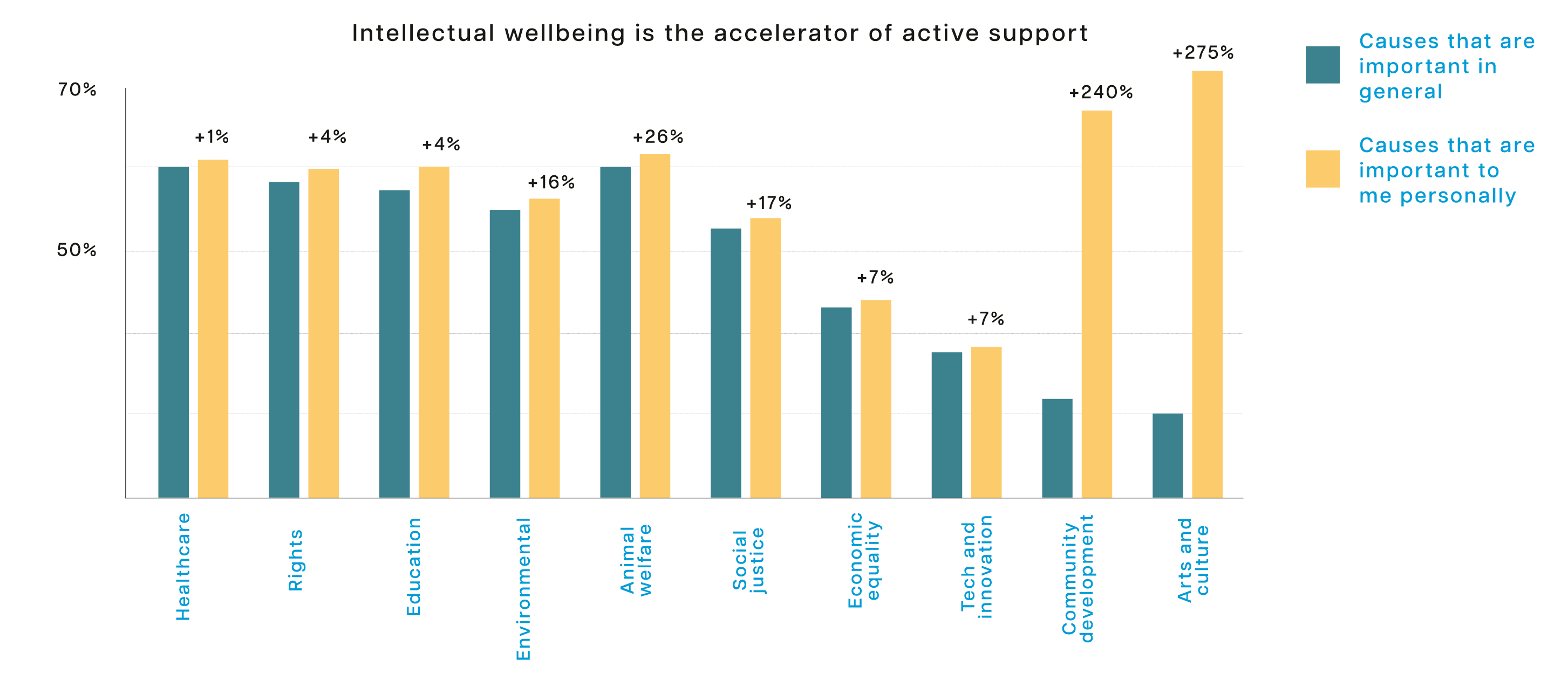
We need to change our propositions to fit where and who they are
To help young adults engage with causes we need to empower them in a more localised way, aligning our messaging directly with their personal experiences and providing the resources they need to take action.
This audience is seeking self-enrichment. Our membership products should be designed to help them grow as people, navigate and understand the cause and their impact.
We should move away from positioning membership as a physical/material benefit, and towards offering community with demonstrably purposeful (but not necessarily in-person) dimensions.
And finally, we must take part in the conversations of their everyday lives. These conversations are indisputably happening on social media.
.png)
Meeting very different priorities
The priorities and behaviours of young adults are changing rapidly presenting challenges for non-profits seeking to engage their support.
With under-developed digital platforms, resource restrictions and the constant pressure to reduce costs, making the case to invest time and resources into engaging the young adult audience is not easy at all.
This is especially so while we’re still enjoying the returns from the wealthy and easy-to-reach Baby Boomers.
Five key takeaways
Young adults are seeking a different kind of engagement; in an unpredictable world they are seeking connections that they can relate to personally.
To secure this engagement and support, non-profits must make a firmer commitment to digital strategies and prioritise social media within the channel mix.
We need to put the audience first and ask ourselves: Are we just print-plus-digital, or are we truly digital-first in our approach to young adults?
When we make this transition we will be able to unlock the full potential of this audience.
Here are our top tips to reach the young adult supporters with purpose:
1. Let people increase support without the burden of 'membership' as the next step.
2. Provide more ways for supporters to ‘turn up’ virtually.
3. Focus the benefits of membership on self-enrichment rather than the physical or material.
4. Steer supporters to connect together and build community.
5. Be prepared to do things differently and capitalise on digital platform strengths.
Want to know more or read the full report?
For bespoke insights and support in developing your engagement strategy, drop us a line: clair.atkins@ourmedia.co.uk
.jpg)
More than just a strategic content agency
Content Marketing
We help our clients succeed through brilliantly told stories, the richest products and most effective campaigns.
Content Production
Our studios can produce content for any format, channel or medium. Always delivering the highest quality and biggest impact.
Monetisation
We create new revenue streams and commercial models for our clients rooted in our expertise of specialist content.
Consultancy
We help our clients assess new opportunities and overcome obstacles through a combination of data, insight, strategy and technology.
Advertising
Connect with our audiences that make up over 20% of the UK population in the environments that matter to them.

The exterior of our Bristol HQ
